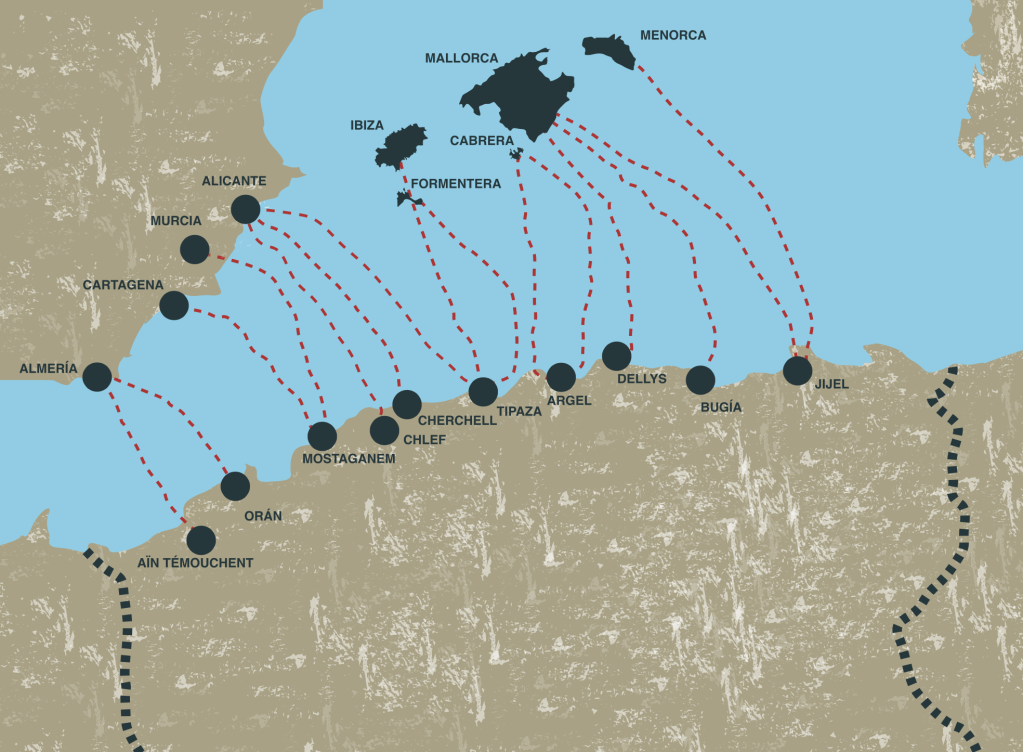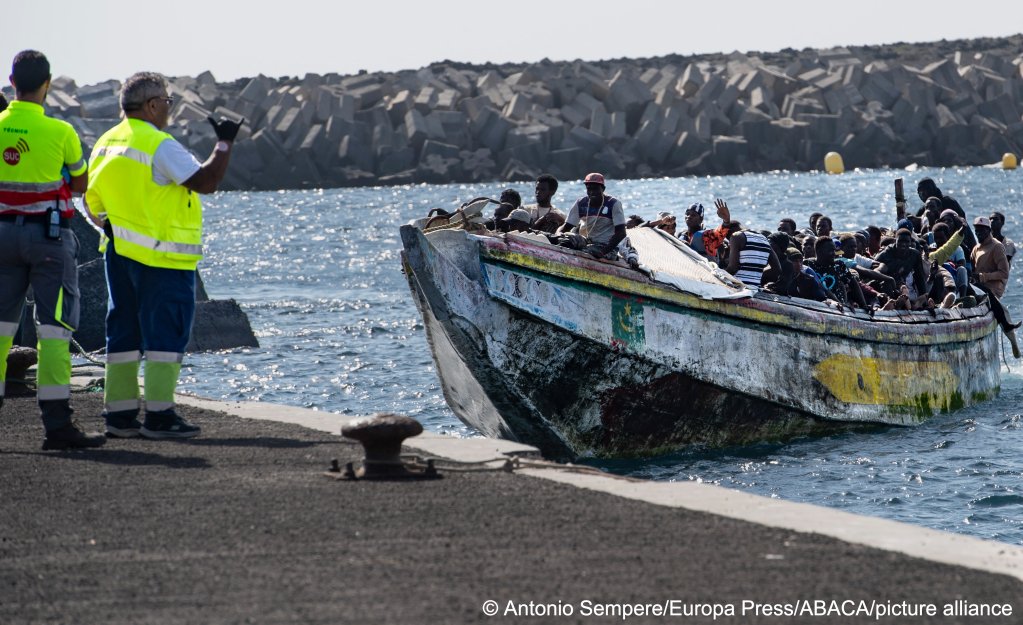Spain continues to face significant migrant arrivals. While the Canary Islands recorded record numbers in 2024, the Balearic Islands in the Mediterranean are also struggling to cope with migrants reaching its shores. Meanwhile, the government in Madrid appears to be falling short in providing adequate support to the regions most overwhelmed with migration.
Spain continues to be on the forefront of irregular migration to Europe, as record-breaking numbers of people reached the Canary Islands archipelago in 2024. At least 46,843 people have made the dangerous crossing from the African mainland to the island group, surpassing previous years.
But the Canary Islands aren't the only islands experiencing an increase in migrant arrivals; the Balearic Islands in the Mediterranean are also seeing a rise in migration.
Nearly 6,000 migrants arrived in the Balearic Islands in 2024 -- almost three times the number from the previous year. According to the Spanish news agency EFE, 5,924 migrants disembarked there in 2024, compared with 2,278 in 2023. According to the migrant charity Caminando Fronteras, at least 517 people have died in 2024 on this migration route in 2024.
Read AlsoBalearic Islands and Canaries: Ongoing migrant arrivals further strain reception capacities
More departures from Algeria
In the past two years, the majority of migrants arriving on the island group were found to have departed from Algeria across the Mediterranean. However, according to Caminando Fronteras, this is not necessarily an indication of their origin.
"Almost 40 percent of the people taking the Balearic sea route now come from countries other than Algeria," the NGO said in a recently published report.
Officials believe that part of the reason for increasing numbers on the Balearic route is the fact that it is not as closely monitored as other parts of Spain, such as the Canary Islands or the Spanish exclaves of Ceuta and Melilla.

A migration route growing in popularity
Most recently, four dinghies reached the coasts of the three Balearic Islands of Ibiza, Formentera and Mallorca on January 1, transporting 98 migrants.
Local authorities were busy on New Year's Day, as one boat approached the island group after the next.
Around midday, Spanish Guardia Civil law enforcement officials first intercepted 20 people on the shores of La Xanga on the island of Ibiza, according to media reports. All but one person on board the small vessel were of sub-Saharan origin.
Two hours later, a boat carrying 21 North African migrants reached the Pilar de la Mola area in the southern part of Formentera.
A third boat, carrying 31 people of North African origin, meanwhile was also intercepted by the Guardia Civil in the same area shortly thereafter.
Then in the evening hours, Spanish maritime rescue services came to the rescue of another 25 sub-Saharan African migrants who had been spotted traveling on a dinghy more than 20 kilometers away from Santa Ponca, south-west of Mallorca.
Just a few days earlier, on December 29, 92 people had reached the island of Formentera in four separate boats.

Government not doing enough
Local authorities in the island group are asking the central government in Madrid for more support to address this increase in arrivals. Already back in November, the national police force in charge of registering migrant arrivals in the Balearic Islands said it felt "overwhelmed" with this growing rate of migrant newcomers.
Balearic senator Miquel Jerez said at the time that "(l)ocal administrations have reached their limits, and are alone and abandoned."
Elsewhere in Spain, there are also calls for the government to step in and help local authorities with the migrant reception programs.
In the Canary Islands, the reception of unaccompanied minors is a particular concern, as there aren't enough capabilities to take care of all arrivals.
The islands have been asking the central government to move several thousand underage migrants to the mainland; however, under Spanish law, migrant minors have to be taken care of in the municipalities they arrive in.
While there are two new temporary reception centers set up in the Canaries to house unaccompanied minors when they first arrive, it is not enough to lift the overall burden on the island group.
But there has been no progress between the islands and Madrid in solving the issue, even though the EU has pledged to make more funds available to help those working in the frontlines of the migration situation.
Read AlsoSpain: People's Party and Canary Islands government present agreement on distribution of minors
Canaries taking matters into their own hands
With this problem now reaching a deadlock situation, the president of the Canary Islands, Fernando Clavijo, decided last month to reach out to the other autonomous regions of Spain to try to convince them to collaborate with the Canaries directly.
The text of the communique sent to the rest of the autonomous regions reads that the Spanish government has "the responsibility to promote an equitable distribution" in which "material and economic resources" are provided -- in particular when it comes to measures related to distributing migrant children arriving in the archipelago.
But in the absence of any progress being made with the central government, Clavijo requests in his letter that the other regions have to apply "in an effective way the solidarity and territorial co-responsibility," as is prescribed by law.
Similar complaints have meanwhile also been made by the administration of the Basque region, which borders France, and which has been witnessing a rise in young people crossing the border.
Read AlsoRecord toll for migrants missing at sea: Spanish NGO
